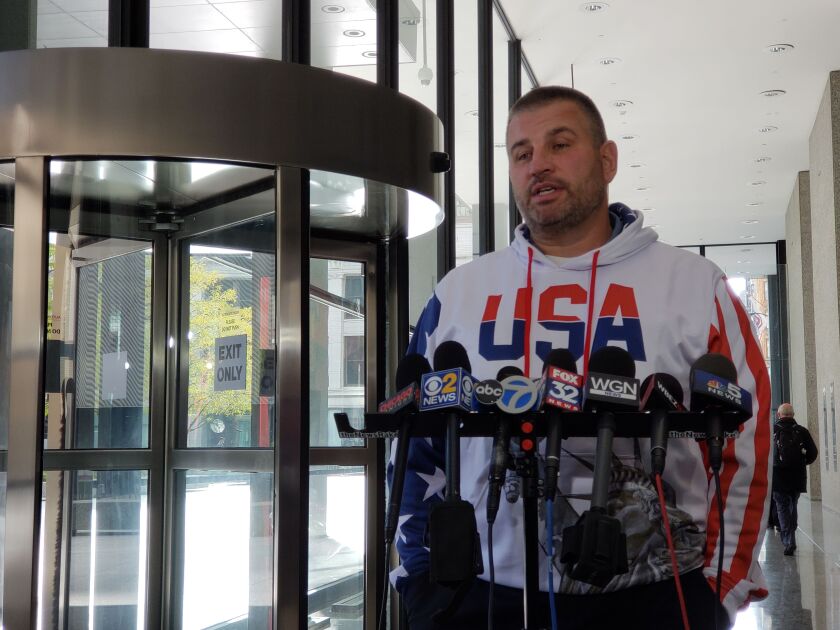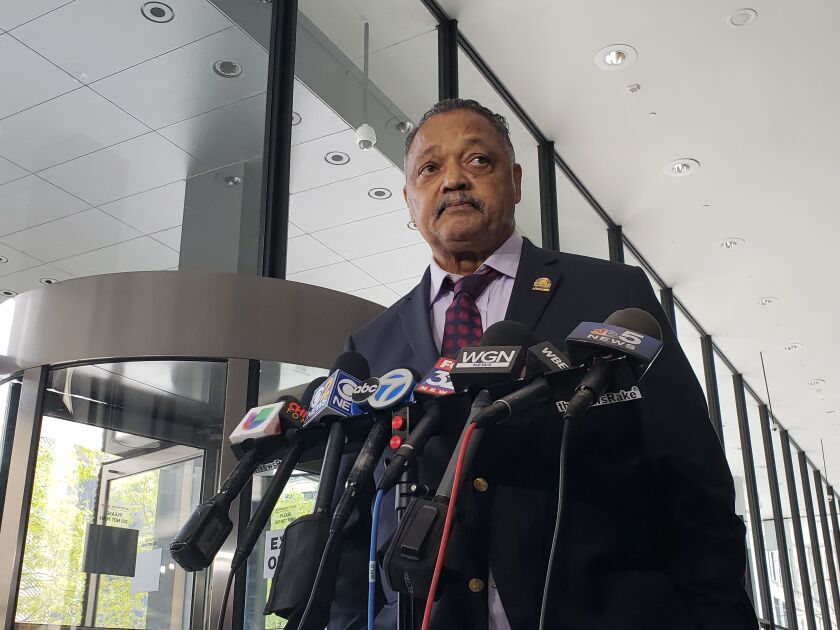They came from every corner of Chicago and all walks of life.
They came from Black Lives Matter and the Chicago Police Department. They came from churches, law firms and community groups. And in a crowded Loop courtroom Wednesday, they heaped decades of frustration over Chicago policing on one man: U.S. District Judge Robert Dow.
The judge listened intently as he presided over a historic public hearing at the Dirksen Federal Courthouse. He heard from nearly 50 people. Some dropped names like Jon Burge, Fred Hampton and Jason Van Dyke. Some were police officers who told him they just want to keep the city safe. Then, when it was all over, he promised to do it again Thursday.
Dow called the two-day public hearing in the ceremonial courtroom on the 25th floor after City Hall and Attorney General Lisa Madigan’s office asked him to approve a proposed consent decree that would govern nearly every aspect of policing in Chicago. While the hearing is a key part of the approval process, it also represents a rare opportunity for everyday Chicagoans to be heard by a federal judge on a contentious issue that has long troubled the city.
Among them was Michael Harrington, a black Chicago native. He said he was once arrested while wearing a suit and tie at a CTA train station in Lakeview because a ticket agent thought he looked like a criminal who robbed and shot him. Harrington said six plain-clothes officers slammed him into a wall, took his keys and searched his home, later interrogating him and locking him in a cell. Eventually, he said police realized he had been preparing to testify at a Chicago City Council committee meeting at the time of the robbery. An officer told him simply, “you can go.”
“I took a bus home,” Harrington said. “Afraid, angry, and in silence.”
The first Chicago police officer to speak his mind was John Catanzara, a 24-year veteran of the force. He wore his uniform to the courthouse, covered by a jersey-style sweatshirt that said “USA” on the front and “Trump 45” on the back. He chided Madigan for going after “low-hanging fruit” and developing the proposed consent decree in an “anti-police climate.”
Catanzara said people need to learn to respect a simple, race-neutral command: “stop now.”
“If you comply with the initial order,” he said, “It stops right then and there.”
“Until we start explaining to these kids that their personal choices have consequences, no consent decree is going to change anything,” he added.
However, Catanzara said he agrees with the consent decree’s proposed reforms to CPD’s training and disciplinary systems, acknowledging that he has faced discipline over the years. He also said he spoke for many members of CPD who felt they could not speak out “for various reasons.”
Earlier, Cook County Public Defender Amy Campanelli told the judge CPD officers have abused her clients for years. She said they told her of arrests that ended in bruised wrists from tight handcuffs, broken fingers, black eyes and cuts to people’s faces.
“Each story was so similar, so consistent, I knew they were true,” Campanelli said.
She urged the judge to enter the consent decree to “foster some sense of trust and hope” in the communities largely affected by police use of force.
The judge also heard from the Rev. Jesse Jackson, who invoked the name of Van Dyke, the Chicago Police officer recently found guilty of second-degree murder and 16 counts of aggravated battery for the shooting death of teenager Laquan McDonald.
“One man cannot be the fall guy for this criminal justice collapse,” Jackson said.
In the courthouse lobby, Jackson added that 50 years without a murder conviction for a Chicago officer was “evidence of how long” Chicago has had a problem with police. He said one conviction is not a final solution.
Near the end of the day, another longtime Chicago police officer spoke to the judge. Michael Garza said he had served in the Chicago Police Department for 25 years. He said “no piece of paper” could tell him how to do his job — or how to respect people.
He said, “there are dangerous people out there.”
“The crime that I’ve seen, it’s horrific,” he said. “I’ve seen the terrible things that they do out there. I’ve seen the terrible criminals who disrespect life.”
“I want my Chicago safe,” Garza told the judge. “And this is not the way to do it.”







